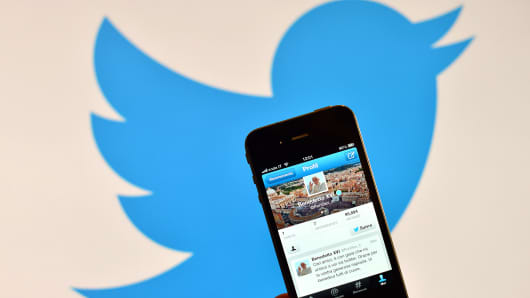There may be a double-edged sword when it comes to social media marketing.
Marketers can target Twitter users in real-time based on keywords found in tweets, but what if those terms are negative and focused on terror?
Twitter also allows advertisers to insert a message atop its list of nine trending topics in a spot called the "promoted trend." This digital billboard sits alongside users' streams on its site and mobile application, and costs $200,000 a day in the United States, according to a source in the advertising industry. If those nine topics reflect bad news, does a brand decide not to shell out the cash?
(Slideshow: Twitter Trading: 8 Tweets That Moved Markets)
In the 38 days leading up to the Boston Marathon bombings, Twitter sold 29 promoted trends, according to tracking by CNBC, for a success rate of 76.3%. In the week following the Boston Marathon bombings, Twitter did not feature a single paid advertiser's promoted trend. (Aside for a promoted trend given to the city of Boston free of charge and Twitter's promotion of its own #music application, the advertising spot sat vacant.)
Did advertisers choose to stay away from displaying promoted trends and promoted tweets when it would be viewed alongside and within a constant stream of tweets pertaining to the marathon bombings? Or did Twitter black out the dates and not offer the week entirely?
(Watch Now: What's Trending on Twitter)
Twitter declined to comment when asked, as did Progressive, the first company to take out a promoted trend following the bombings. The auto-insurance company's ad – a hashtag #RateSuckers – hit Twitter at 6am ET this past Monday, nearly a full week after the terror attacks in Boston.





